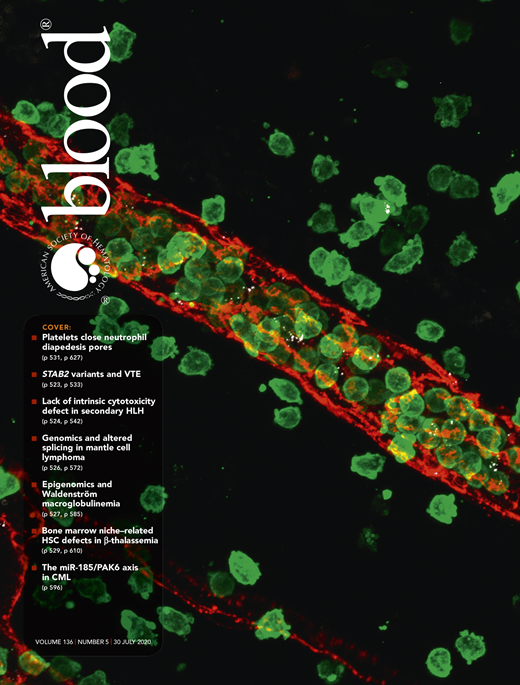Using lipid nanoparticles (LNPs), NMIN research leaders Drs. Pieter Cullis and Christian Kastrup, together with colleagues at The University of British Columbia (UBC), have developed a new tool that can inhibit the activity of a blood protein involved in thrombosis and a number of other afflictions.
The protein in question, known as coagulation Factor XIII (FXIII), influences the unwanted development of blood clots and plays a role in a variety of ailments, from thrombosis to arthritis and cancer.
Despite the protein’s importance, however, no methods have been developed to modulate its activity.
Until now: Using LNPs to deliver silencing RNA (siRNA) in rabbits and mice, the researchers effected a 90 percent decrease of the protein that persisted for up to three weeks after a single injection, making disease-causing clots easier to dissolve without the common side-effect of excess bleeding.
With repeated dosing, the researchers sustained the decrease for over five months without adverse effects.
“When packaged in LNPs containing ionizable cationic lipids,” notes first author Amy Wong-Strilchuk, “appropriate siRNA sequences can modulate the expression of proteins such as FXIII that are produced in the liver and released into plasma.”
The results of this work, published in the journal Blood, demonstrate that the approach has the potential to be translated as a gene therapy for thrombosis and for other diseases in humans where FXIII plays a role.
“This method may offer a safer way to prevent and alleviate thrombosis, including where it is caused by COVID-19,” observes Dr. Cullis. “While some COVID-19 patients have benefited from thrombolytic therapy, it has been associated with severe bleeding. This new method does not carry the same risk.”
“Further work is needed to establish the utility of this method for controlling fibrinolysis (or the suppression of unwanted clotting) and thrombosis in humans,” comments corresponding author Dr. Kastrup. “The preclinical work presented here, however, also establishes a framework for investigating the functions of this protein in other diseases.”
Drs. Cullis and Kastrup are the co-leaders of NMIN’s Gene Therapy research theme.
